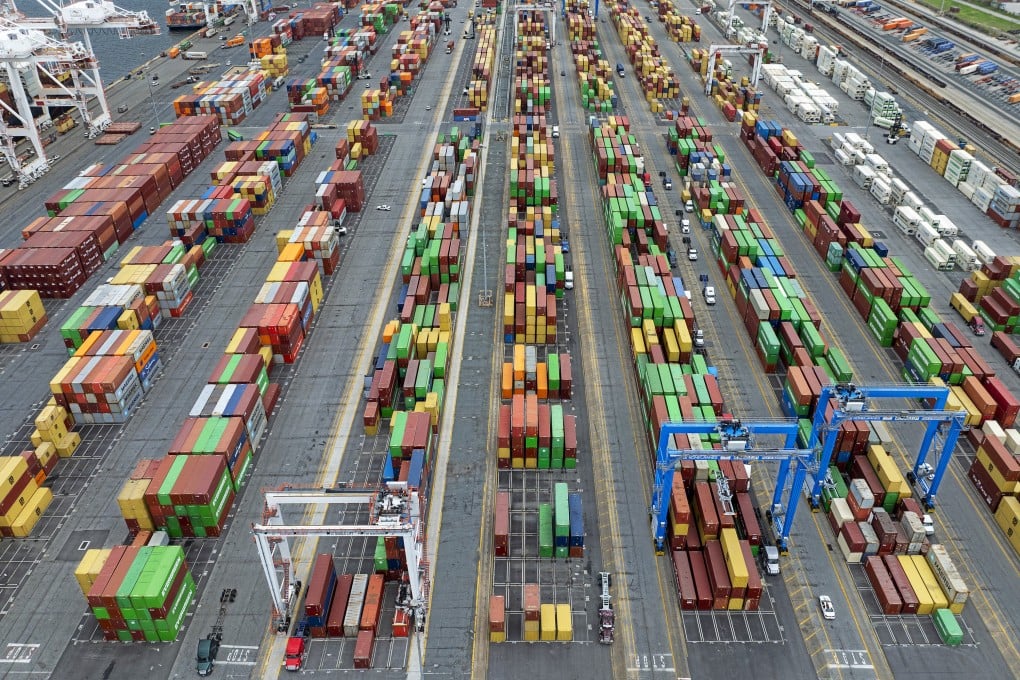Articles in this Cluster
18-04-2025
The US plans to impose port fees on Chinese ships from mid-October to challenge China's dominance in the shipbuilding industry. The fees will start at $50 per ton of cargo and rise by $30 per ton each year for three years. The charges will be based on the weight of cargo, number of containers, or number of vehicles on board. The move is expected to raise prices for US consumers, with concerns it will further disrupt global trade, which is already being impacted by US President Donald Trump's trade tariffs.
Entities: US, China, Donald Trump, British Broadcasting Corporation, US President • Tone: analytical • Sentiment: negative • Intent: inform
18-04-2025
The Trump administration announced fees on Chinese-built vessels docking at U.S. ports, with the goal of reversing China's dominance in the shipbuilding industry and promoting U.S. ship manufacturing. The fees, which will be charged once per voyage, will start at $0 and increase to $140 per net ton by 2028 for Chinese-owned vessels, and will be lower for non-Chinese-owned operators using Chinese-built vessels. Vessel owners can be eligible for a remission of the fees if they order a U.S.-built vessel. The move has been met with criticism from China and the World Shipping Council, who argue it will harm U.S. consumers and manufacturers. Certain types of shipping, such as bulk exports and Great Lakes or Caribbean shipping, will be exempt from the fees.
Entities: Trump administration, China, U.S., World Shipping Council, Great Lakes • Tone: analytical • Sentiment: neutral • Intent: inform
18-04-2025
China is mobilizing researchers to develop a strong historical narrative to reinforce its borders, as borderland security is a top national priority due to tensions with neighboring countries and ethnic tensions in western regions. The Chinese government is seeking to build indigenous expertise in borderland governance and deepen research on related theoretical and practical issues to secure local stability, strengthen relations with its neighbors, and gain a strong narrative footing, particularly as its rivalry with the US intensifies.
Entities: China, South China Morning Post, US, Chinese government, western regions • Tone: analytical • Sentiment: neutral • Intent: inform
18-04-2025
The US has imposed hefty port fees on Chinese vessels docking in the US, escalating the trade war between the two countries. The fees will be incrementally raised and target Chinese-owned, operated, and built ships, potentially disrupting global supply chains and increasing shipping costs. China has vowed to take necessary measures to safeguard its rights and interests, with its foreign ministry spokesperson stating that the move will not revitalize the US shipbuilding industry and may even fuel inflation in America. The decision has been met with warnings of global repercussions and potential harm to other countries.
Entities: US, China, South China Morning Post, Chinese vessels, US shipbuilding industry • Tone: analytical • Sentiment: negative • Intent: inform
18-04-2025
The US is introducing steep port fees on China-built vessels in an effort to revive its shipbuilding industry and reduce China's dominance in the global shipping sector. The fees, which will be linked to the weight of cargo or number of containers, will start at $18 per net ton or $120 per container and can be waived if the ship owner places an order for a US-built ship. The move is part of a broader effort to revitalize the US shipbuilding industry, which has declined significantly since its post-WWII peak and now accounts for less than 1% of global output. The fees were scaled back from initial proposals, which had sparked concerns about increased costs for consumers and impact on US trade.
Entities: US, China, The Guardian, US shipbuilding industry, China-built vessels • Tone: analytical • Sentiment: neutral • Intent: inform
18-04-2025
The US has introduced new port fees on Chinese-built and operated ships to boost its domestic shipbuilding industry and reduce China's dominance in the sector. The fees, which will be assessed per tonnage or per container, will apply to each Chinese-linked ship's US voyage, up to five times a year. The fees can be waived if the ship owner orders a US-built vessel. The move is part of a broader trade war between the US and China, and is expected to escalate tensions. The fees will start at $18 per net ton or $120 per container for Chinese-built ships, and will increase over subsequent years. The US shipbuilding industry has declined significantly, now accounting for just 0.1% of global output, while China builds nearly half of all ships launched.
Entities: US, China, Beijing, The Guardian, Chinese-built ships • Tone: analytical • Sentiment: negative • Intent: inform
